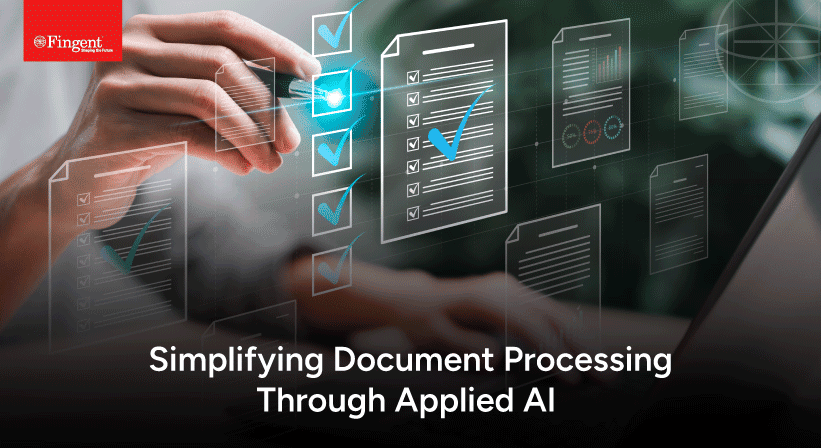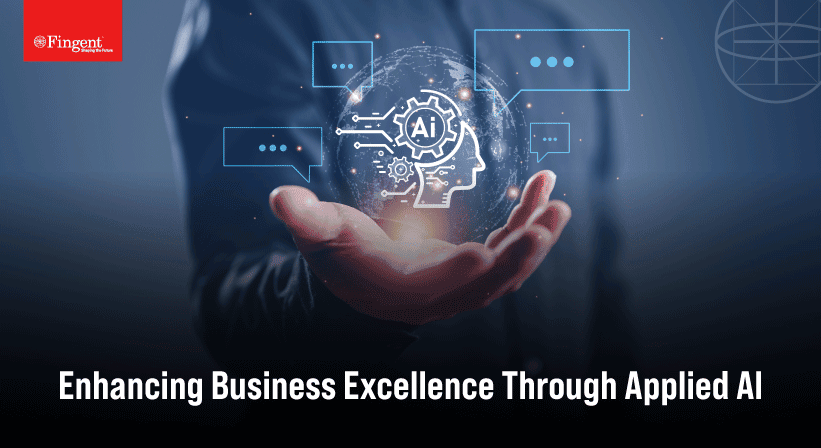AI Recruitment: The New Norm In Hiring & Recruiting Industry
How Is AI Changing the Game For HR?
With Artificial Intelligence (AI) making sweeping reforms in every aspect of a business, it comes as no surprise that Human Resources have discovered just how beneficial this technology can be. From talent acquisition to policy planning, payroll engagement efforts, and reporting, AI recruitment is enabling businesses to save time and costs, increase productivity and improve accuracy.
This blog will discuss 3 ways in which AI has proved to be a game-changer in HR.
1. Selecting and Training Employees
Hiring the right employee and ensuring that he is a good fit in the organization is a fundamental tenet of success in business. Let’s consider the hiring process. AI recruitment can surpass biases, eliminate manual and machine limitations, and enhance the screening process by better identifying skills gaps and selecting candidates that have the highest potential for success.
Dr. Jeremy Nunn, Founder, and Director of Workmetrics, a leader in workforce software say: “Thanks to AI, organizations are able to better grade and rank qualifications during the screening process, develop candidate profiles, interact with job candidates and quickly reach out to the best ones before other companies take action.” Consider the hours of work that this will save for recruiters!
AI can also enhance existing technologies and refine the application process. In an earlier blog, we had talked about how the Applicant Tracking System (ATS) is Transforming Hiring Norms. AI can further enhance these technologies in several ways. For example, instead of the ATS relying only on a set of manually entered keywords to qualify a resume, AI helps the system look beyond the keywords and understand the concept behind the requirement. Deep Learning, Sentiment Analysis, Predictive Analysis, and other AI concepts can be used to enhance the candidate screening and qualifying process.
AI recruitment technology has also proved its mettle in the training and development of existing employees. It has the ability to get an overview of the entire workforce at once and automatically analyze the skills in each employee. It can then match these skills to the organization’s objectives and provide insights into specific areas for improvement and recommend the most effective training for each employee.
2. Improve Employee Experience
Improving the overall experiences of the employee with the company through every touchpoint is now made possible with AI technology. AI can enhance factors that affect an employee’s experience like compensation, communication, opportunities to grow and much more.
Let’s consider Compensation Benchmarking for example. The traditional benchmarking strategy based on titles doesn’t cut it anymore, because the functions performed under a title is seldom the same across different companies or even across departments. AI recruitment overcomes this issue by processing large amounts of employee-level responsibility data and providing accurate comparisons between employees through machine learning models. This helps businesses identify and accurately compensate employees with similar responsibilities and caliber.
Another important aspect of employee experience is access to information and communication. Discussing a survey by ServiceNow, their HR Evangelist & Transformation Leader Jennifer Stroud says: “30 percent of survey respondents said they want functionality that mimics Google to easily search for answers to their questions as well as policies and other critical company information.”
Conversational AI for the HR system will help in this regard. AI-powered programs including chatbots can be used to provide employees with instant answers to their questions right from the onboarding process. Access to basic training modules, guidelines on business ethics and conduct and other information can also be provided this way. Chatbots can govern access to documents based on the employee’s title and other factors. Natural language processing (NLP) has been vital in the success of conversational AI.
Content personalization by using predictive analytics has also been instrumental in enhancing the employee experience by recommending the most suited professional development programs and career paths for each employee.
3. Critical Decision Making
With data-backed insights and intelligent recommendation engines, AI can help solve persistent HR challenges. By aligning functions of HR to the overall business strategy and organizational goals, AI helps HR managers come to the right decisions that will be beneficial to the organization in the long run.
In the context of strategic HR decisions, the role of AI in Manpower Planning and Productivity Management is gaining recognition. Let’s consider the measurement of productivity of the Sales Function as an example. Traditionally, this has been measured by the achievement of targets. This, however, rules out considerations of missed opportunity or optimal revenue extracted from the market. AI helps in this regard by providing an overall analysis of the market, the competition and runs comparisons with the skills, attitude, and effort of the sales professional. Drawing this data from CRM, accounting, Geo-position tracking, sales logs and more is no easy task but is achievable by AI.
Transforming HR with AI
Although two-thirds of CEOs say AI will drive significant value in HR, only 11% of CHROs say that their organization has the skills to implement it. Don’t let your business be one of the 11%. Give us a call and let’s make AI happen for you.
Stay up to date on what's new

Recommended Posts

08 May 2024 Financial Services B2B
AI Shaping the Future of Financial Services: Use Cases & Applications
As Dan Schulman, the CEO of PayPal once said, “We're not trying to reinvent the wheel; we're trying to perfect it.” Achieving perfection is no easy process. It is not……

24 Apr 2024 B2B
A Leader’s Blueprint for AI Success
"Leaders, embrace AI! Make it your superpower!" - Robert Barber, Leadership Development Trainer and Executive Coach. How Are Businesses Using AI? The verdict is crystal clear—leaders today must embrace AI to……

18 Apr 2024 B2B
Applied AI For Document Processing
"It's becoming increasingly clear that AI is the future, and almost everything else is a sideshow." - World-renowned computer scientist Geoff Hinton AI has taken over almost every aspect of……

21 Feb 2024 B2B
Stepping The AI Revolution with Applied AI
“I am telling you, the world’s first ‘trillionaires’ are going to come from somebody who masters AI and all its derivatives and applies it in ways we never thought of.”……
Featured Blogs
Stay up to date on
what's new















 US
US Insurance
Insurance









































